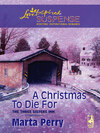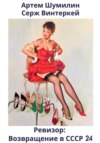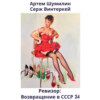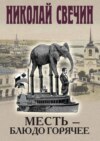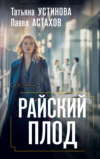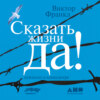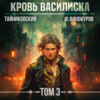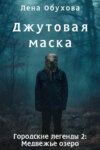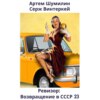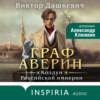Читать книгу: «A Christmas to Die For»
A Christmas to Die For
Marta Perry

MILLS & BOON
Before you start reading, why not sign up?
Thank you for downloading this Mills & Boon book. If you want to hear about exclusive discounts, special offers and competitions, sign up to our email newsletter today!
Or simply visit
Mills & Boon emails are completely free to receive and you can unsubscribe at any time via the link in any email we send you.
This story is dedicated to my supportive
and patient husband, Brian, with much love.
CONTENTS
Cover
Title Page
Dedication
ONE
TWO
THREE
FOUR
FIVE
SIX
SEVEN
EIGHT
NINE
TEN
ELEVEN
TWELVE
THIRTEEN
FOURTEEN
FIFTEEN
Copyright
ONE
Rachel Hampton stood on the dark country road where, seven months ago, she’d nearly died. The dog pressed against her leg, shivering a little, either from the cold of the December evening or because he sensed her fear.
No, not fear. That would be ridiculous. It had been an accident, at least partially her fault for jogging along remote Crossings Road in the dark. She’d thought herself safe enough on the berm of the little-used gravel road, wearing a pale jacket with reflective stripes that should have been apparent to any driver.
Obviously it hadn’t been. He’d come around the bend too fast, his lights blinding her when she’d glanced over her shoulder. But now she was over it, she—
Her heart pumped into overdrive. The roar of a motor, lights reflected from the trees. A car was coming. He wouldn’t see her. She’d be hit again, thrown into the air, helpless—
She grabbed Barney’s collar and stumbled back into the pines, pulse pounding, a sob catching in her throat as she fought to control the panic.
But the car was slowing, stopping. The driver’s-side window slid smoothly down.
“Excuse me.” A male voice, deep and assured. “Can you tell me how to get to Three Sisters Inn?”
How nice of him to ignore the fact that she’d leaped into the bushes when she heard him coming. She disentangled her hair from the long needles of a white pine and moved toward him.
“You’ve missed the driveway,” she said. “This is a back road that just leads to a few isolated farms.” She approached the car with Barney, Grams’s sheltie, close by her side. “If you back up a bit, you can turn into a farm lane that will take you to the inn parking lot.”
He switched on the dome light, probably to reassure her. Black hair and frowning brows over eyes that were a deep, deep blue, a pale-gray sweater over a dress shirt and dark tie, a glint of gold from the watch on his wrist, just visible where his hand rested on the steering wheel. He didn’t look like a tourist, come to gawk at the Amish farmers or buy a handmade quilt. The briefcase and laptop that rested on the passenger seat indicated that.
“You’re sure the proprietor won’t mind my coming in that way?”
She smiled. “The proprietor would be me, and I don’t mind at all. I’m Rachel Hampton. You must be Mr. Dunn.” Since she and Grams expected only one visitor, that wasn’t hard to figure out.
“Tyler Dunn. Do you want a lift?”
“Thanks, but it’s not far. Besides, I have the dog.” And I don’t get into a car with a stranger, even if he does have a reservation at the inn.
Maybe it was her having come so close to death that had blunted her carefree ways. Either that or the responsibility of starting the bed-and-breakfast on a shoestring had forced her to grow up. No more drifting from job to job, taking on a new restaurant each time she became bored. She was settled now, and it was up to her to make a success of this.
She stepped back, still holding Barney’s collar despite his wiggling, and waited until the car pulled into the lane before following it to the shortcut. She’d walked down the main road, the way the car had come, but this was faster. She gestured Dunn to a parking space in the gravel pull-off near the side door to the inn.
He stepped out, shrugging into a leather jacket, and stood looking up at the inn. It was well worth looking at, even on a cold December night. Yellow light gleamed from the candles they’d placed in every one of the many nine-paned windows. Security lights posted on the outbuildings cast a pale-golden glow over the historic Federal-style sandstone mansion. It had been home to generations of the Unger family before necessity had turned it into the Three Sisters Inn.
Rachel glanced at the man, expecting him to say something. Guests usually sounded awed or at least admiring, at first sight. Dunn just turned to haul his briefcase and computer from the front seat.
Definitely not the typical tourist. What had brought him to the heart of Pennsylvania Dutch country at this time of year? Visiting businessmen, especially those who traveled alone, were more likely to seek out a hotel with wireless connection and fax machines rather than a bed-and-breakfast, no matter how charming.
“May I carry something for you?”
He handed her the computer case. “If you’ll take this, I can manage the rest.”
The case was heavier than she’d expected, and she straightened, determined not to give in to the limp that sometimes plagued her when she was tired—the only remaining souvenir of the accident.
Or at least she’d thought that was the only aftereffect, until she’d felt that surge of terror when she’d seen the car. She’d have to work on that.
“This way. We’ll go in the side door instead of around to the front, if you don’t mind.”
“Fine.”
A man of few words, apparently. Dog at her heels, she headed for the door, hearing his footsteps behind her. She glanced back. He was taller than she’d realized when he sat in the car—he probably had a good foot on her measly five two, and he moved with a long stride that had him practically on her heels.
She went into the hallway, welcoming the flow of warm air, and on into the library. She didn’t usually bring guests in through the family quarters, but it seemed silly to walk around the building just to give him the effect of the imposing front entrance into the high-ceiled center hall. The usual visitor ohhed and ahhed over that. She had a feeling Tyler Dunn wouldn’t.
“My grandmother has already gone up to bed.” She led the way to the desk. “You’ll meet her in the morning at breakfast. We serve from seven-thirty to nine-thirty, but you can make arrangements to have it earlier, if you wish.”
He shook his head, glancing toward the glowing embers of the fire she’d started earlier. Grams’s favorite chair was drawn up next to the fireplace, and her knitting lay on its arm.
“That’s fine. If I can just get signed in now and see my room—”
“Of course.” Smile, she reminded herself. The customer is always right. She handed him a registration card and a pen, stepping back so that he had room to fill it out.
He bent over, printing the information in quick, black strokes, frowning a little. He looked tired and drawn, she realized, her quick sympathy stirring.
“That’s great, thanks.” She imprinted the credit card and handed it back to him. “You indicated in your reservation that you weren’t sure how long you’d want the room?”
She made it a question, hoping for something a little more definite. With all the work she’d been doing to lure guests for the holiday season, the inn still wasn’t booked fully. January and February were bound to be quiet. In order to come out ahead financially, they needed a good holiday season. Her money worries seemed to pop up automatically several times a day.
“I don’t know.” He almost snapped the words. She must have shown a reaction, because almost immediately he gave her a slightly rueful smile. “Sorry. I hope that doesn’t inconvenience you, but I have business in the area, and I don’t know how long it will take.”
“Not at all.” The longer she could rent him the room, the better. “Perhaps while you’re here, you’ll have time to enjoy some of the Christmas festivities. The village is planning a number of events, and of course we’re not far from Bethlehem—”
“I’m not here for sightseeing.” His gaze was on the dying fire, not her, but she seemed to sense him weighing a decision to say more. “That business I spoke of—there’s no reason you’d recognize my name, but I own the property that adjoins yours on one side. The old Hostetler farm.”
She blinked. “I didn’t realize—” She stopped, not sure how to phrase the question. “I thought the property belonged to John Hostetler’s daughter.”
Who had annoyed the neighbors by refusing to sell the property and neglecting to take proper care of it. The farmhouse and barn had been invaded by vandals more than once, and the thrifty Amish farmers who owned the adjoining land been offended at the sight of a good farm going to ruin.
“My mother,” he said shortly. His face drew a bit tighter. “She died recently.”
That went a long way toward explaining the tension she felt from him. It didn’t excuse his curtness, but made it more understandable. He was still grieving his mother’s death and was now forced to deal with the unfinished business she’d left behind.
“I’m so sorry.” She reached out impulsively to touch his arm. “You have my sympathy.”
He jerked a nod. “I’m here to do something about my grandfather’s property. My mother let that slide for too long.”
It would be impolite to agree. “I’m sure the neighbors will be glad to help in any way they can. Are you planning to stay?”
“Live there, you mean?” His eyes narrowed. “Certainly not. I expect to sell as soon as possible.”
Something new to worry about, as if she didn’t have enough already. The best offer for the Hostetler farm might easily come from someone who wanted to put up some obnoxious faux Amish atrocity within sight of the inn.
“That’s too bad. It would have been nice to hear that family would be living there again.”
She’d made the comment almost at random, but Tyler Dunn’s expression suggested that she’d lost her mind.
“I don’t know why you’d think that.” He bit off the words. “I’m hardly likely to want to live in the house where my grandfather was murdered.”
Tyler closed his laptop and glanced at his watch. A little after eight—time for breakfast and another encounter with the Unger family.
He stood, pushing the ladder-back chair away from the small table, which was the only spot in the bedroom where one could possibly use a computer. He must be the first person who’d checked into the Three Sisters Inn for business purposes. Most of the guests would be here to enjoy staying in the elegant mansion, maybe pretending they were living a century ago.
The place looked as if it belonged in a magazine devoted to historic homes. The bedroom, with its canopy bed covered by what was probably an Amish quilt, its antique furniture and deep casement windows, would look right on the cover.
From the window in his room, he had a good view of Churchville’s Main Street, which was actually a country route along which the village had been built. The inn anchored the eastern edge of the community, along with the stone church which stood enclosed in its walled churchyard across the street. Beyond, there was nothing but hedgerows and the patchwork pattern of plowed fields and pasture, with barns and silos in the distance.
Looking to the left, he could see the shops and restaurants along Main Street, more than he’d expect given the few blocks of residential properties, but probably the flood of tourism going through town accounted for that. The inn had a desirable position, almost in the country but within easy walking distance of Main Street attractions. It was surprising they weren’t busier.
He opened the door. The upstairs landing was quiet, the doors to the other rooms standing open. Obviously, he was the only guest at the moment. Maybe that would make things easier.
Had it been a mistake to come out so bluntly with the fact of his grandfather’s murder last night? He wasn’t sure, and he didn’t like not being sure. He was used to dealing with facts, figures, formulas—not something as amorphous as this.
At least he’d had an opportunity to see Rachel Hampton’s reaction. He frowned. Her name might be Hampton, but she was one of the Unger family.
If his mother had been right—but he couldn’t count on that. In any event, he’d understood what she’d wanted of him. The impossible.
He started down the staircase, running his hand along the delicately carved railing. The downstairs hall stretched from front to back of the house. To his right, the door into the library where he’d registered last night was now closed. On his left, a handsome front parlor opened into another parlor, slightly smaller, behind it, both decorated with period furniture.
He headed toward the rear of the building, where Rachel had indicated he’d find the breakfast room. He’d cleared his calendar until the first of the year. If he couldn’t accomplish what he planned by then, he’d put his grandfather’s farm on the market, go back to his own life and try to forget.
The hallway opened out into a large, rectangular sunroom, obviously an addition to the original house. A wall of windows looked onto a patio and garden, bare of flowers now, but still worth looking at in the shapes of the trees and the bright berries of the shrubs. The long table was set for one.
Voices came from the doorway to the left, obviously the kitchen. He moved quietly toward them.
“…if I’d known, maybe I wouldn’t have opened my mouth and put my foot in it.” Rachel, obviously talking to someone about his arrival.
“There was no reason for you to know. You were just a child.” An older voice, cultured, restrained. If this woman was hiding something, he couldn’t tell.
A pan clattered. “You’d best see if he’s coming down, before these sticky buns are cold.”
That was his cue, obviously. He moved to the doorway before someone could come out and find him. “I’m here. I wouldn’t want to cause a crisis in the kitchen.”
“Good morning.” The woman who rose from the kitchen table, extending her hand to him, must be Rachel’s grandmother. Every bit the grande dame, she didn’t look in the least bothered by what he might or might not have overheard. “Welcome to the inn, Mr. Dunn. I’m Katherine Unger.”
“Thank you.” He shook her hand gently, aware of bones as fine as delicate crystal. The high cheekbones, brilliant blue eyes, and assured carriage might have belonged to a duchess.
Rachel, holding a casserole dish between two oversize oven mitts, had more color in her cheeks than he’d seen the night before, but maybe that was from the heat of the stove.
The third person in the kitchen wore the full-skirted dark dress and apron and white cap of the Amish. She turned away, evading his gaze, perhaps shy of a stranger.
“It’s a pleasure to meet you, Mrs. Unger. I suppose your granddaughter told you who I am.”
“Yes. I was very sorry to hear of your mother’s death. I knew her when she was a girl, although I don’t suppose she remembered me. I don’t remember seeing her again after she graduated from high school.”
“Actually, she spoke of you when she talked about her childhood.” Which hadn’t been often, for the most part, until her final days. He’d always thought she’d been eager to forget.
“I’m sure you’d like to have your breakfast. Rachel has fixed her wild-mushroom and sausage quiche for you.”
“You can have something else, if you prefer,” Rachel said quickly. “I didn’t have a chance to ask—”
“It sounds great,” he said. “And I’m looking forward to the sticky buns, too.” He smiled in the direction of the Amish woman, but she stared down at the stovetop as if it might speak to her.
Rachel, carrying the steaming casserole dish, led the way to the table in the breakfast room. He sat down, but before he had a chance to say anything, she’d whisked off to the kitchen, to reappear in a moment with a basket of rolls.
He helped himself to a fresh fruit cup and smiled at her as she poured coffee. “Any chance you’d pour a cup and join me? It’s a little strange sitting here by myself.”
This time there was no mistaking the flush that colored her cheeks. That fair skin must make it hard to camouflage her feelings. “I’m sorry there aren’t any other guests at the moment, but—”
“Please. I need to apologize, and it would be easier over coffee.”
She gave him a startled look, then turned without a word and took a mug from a mammoth china cupboard that bore faded stenciling—apples, tulips, stars. It stood against the stone wall that must once have been the exterior of the house.
Her mug filled, she sat down opposite him. “There’s really no reason for you to apologize to me.”
Green eyes serious in a heart-shaped face, brown hair curling to the shoulders of the white shirt she wore with jeans, her hands clasped around the mug—she looked about sixteen instead of the twenty-nine he knew her to be. He’d done his homework on the residents of Three Sisters Inn before he’d come.
“I think I do. You were being friendly, and I shouldn’t have thrown the fact of my grandfather’s death at you.”
“I didn’t know.” Her eyes were troubled, he’d guess because she was someone who hated hurting another’s feelings. “We left here when I was about eight, and I didn’t come back until less than a year ago, so I’m not up on local history.”
“I guess that’s what it seems like.” He tried to pull up his own images of his grandfather, but it was too long ago. “Ancient history. I remember coming for the funeral and having the odd sense that conversations broke off when I came in the room. It must have been years before I knew my grandfather had been killed in the course of a robbery.”
She leaned toward him, sympathy in every line of her body. “I’m sure it’s hard to deal with things so soon after your mother’s death. Is there any other family to help you?”
“I’m afraid not.” He found himself responding to her warmth even while the analytical part of his mind registered that the way to gain her cooperation was to need her help. “I hate the thought of seeing the farm again after all this time. It’s down that road I was on last night, isn’t it?”
He paused, waiting for the offer he was sure she’d feel compelled to make.
Rachel’s fingers clenched around the mug, and he could sense the reluctance in her. And see her overcome it.
“Would you like me to go over there with you?”
“You’d do that?”
She smiled, seeming to overcome whatever reservation she had. “Of course. We’re neighbors, after all.”
It took a second to adjust to the warmth of that smile. “Thanks. I’d appreciate it.”
Careful. He took a mental step back. Rachel Hampton was a very attractive woman, but he couldn’t afford to be distracted from the task that had brought him here. And if she knew, there might very well be no more offers of help.
The dog danced at Rachel’s heels as she walked down Crossings Road beside Tyler that afternoon. At least Barney was excited about this outing. She was beginning to regret that impulsive offer to accompany Tyler. And as for him—well, he looked as if every step brought him closer to something he didn’t want to face.
Fanciful, she scolded herself, shoving her hands into the pockets of her corduroy jacket. The sun was bright enough to make her wish she’d brought sunglasses, but the air was crisp and cold.
“There’s the lane to the farmhouse.” She pointed ahead to the wooden gate that sagged between two posts. If there’d ever been a fence along the neglected pasture, it was long gone. “Is it coming back to you at all?”
Tyler shook his head. “I only visited my grandfather once before the time I came for the funeral. Apparently, he and my mother didn’t get along well.”
From what Grams had told her this morning, John Hostetler hadn’t been on friendly terms with anybody, but it would hardly be polite to tell Tyler that. “That’s a shame. This was a great place to be a kid.”
Her gesture took in the gently rolling farmland that stretched in every direction, marked into neat fields, some sere and brown after the harvest, others showing the green haze of winter wheat.
He followed her movement, narrowing his eyes against the sun. “Are those farms Amish?”
“All the ones you see from here are. The Zook farm is the closest—we share a boundary with them, and you must, as well.” She pointed. “Over there are the Stolz-fuses, then the Bredbenners, and that farthest one belongs to Jacob Stoker. Amish farms may be different in other places, but around here you’ll usually see a white bank barn and two silos. You won’t see electric lines.”
He gave her an amused look. “You sound like the local tour guide.”
“Sorry. I guess it comes with running a B&B.”
He looked down the lane at the farmhouse, just coming into view. “There it is. I can’t say it brings any nostalgic feeling. My grandfather didn’t seem welcoming when we came here. If my mother ever wanted to change things with him—well, I guess she left it too late.”
Was he thinking again about his grandfather’s funeral? Or maybe regretting the relationship they’d never had? She knew a bit about that feeling. Her father had never spent enough time in her life to do anything but leave a hole.
“You said something this morning about conversations breaking off when you came in the room—people wanting to protect you, I suppose, from knowing how your grandfather died.”
He nodded, a question in his eyes.
“I know how that feels. When my father walked out, no one would tell us anything.” She shook her head, almost wishing she hadn’t spoken. After all these years, she still didn’t like thinking about it. But that was what made her understand how Tyler felt. “Maybe they figured because he’d never been around much anyway, we wouldn’t realize that this time was for good, but the truth would have been better than what we imagined.”
His deep-blue eyes were so intent on her face that it was almost as if he touched her. “That must have been rough on you and your sisters.”
She registered his words with a faint sense of unease. “I don’t believe I mentioned my sisters to you.”
“Didn’t you?” He smiled, but there was something guarded in the look. “I suppose I was making an assumption, because of the inn’s name.”
That was logical, although it didn’t entirely take away her startled sense that he knew more about them than she’d expect from a casual visitor.
“The name may be wishful thinking on my part, but yes, I have two sisters. Andrea is the oldest. She was married at Thanksgiving, and she and her husband are still on a honeymoon trip. And Caroline, the youngest, is an artist, living out in Santa Fe.” She touched the turquoise and silver pin on her shirt collar. “She made this.”
Tyler stopped, bending to look at the delicate hummingbird. He was so close his fingers almost touched her neck as he straightened the collar, and she was suddenly warm in spite of the chill breeze.
He drew back, and the momentary awareness was gone. “It’s lovely. Your sister is talented.”
“Yes.” The worry over Caro that lurked at the back of her mind surfaced. Something had been wrong when Caro came home for the wedding, hidden behind her too-brittle laugh and almost frantic energy. But Caroline didn’t seem to need her sisters any longer.
“The place looks even worse than I expected.” Tyler’s words brought her back to the present. The farmhouse, a simple frame building with a stone chimney at either end, seemed to sag as if tired of trying to stand upright. The porch that extended across the front sported broken railings and crumbling steps, and several windows had been boarded up.
“Grams told me the house had been broken into several times. Some of the neighbors came and boarded up the windows after the last incident. The barn looks in fairly good shape, though.”
That was a small consolation to hold out to him if he really hadn’t known that his mother let the place fall to bits. Still, a good solid Pennsylvania Dutch bank barn could withstand almost anything except fire.
“If those hex signs were meant to protect the place, they’re not doing a very good job.” He was looking up at the peak of the roof, where a round hex sign with the familiar star pattern hung.
“I don’t think you’d find anyone to admit they believe that. Most people just say they’re a tradition. There are as many theories as there are scholars who study them.”
Tyler went cautiously up the porch steps and then turned toward her. “You’ll have to climb over the broken tread.”
She grasped the hand he held out, and he almost lifted her to the porch. She whistled to the dog, nosing around the base of the porch. “Come, Barney. The last thing we need is for you to unearth a hibernating skunk.”
“That would be messy.” Tyler turned a key in the lock, and the door creaked open. He hesitated for an instant and then stepped inside. She followed, switching on the flashlight that Grams had reminded her to bring.
“Dusty.” A little light filtered through the boards on the windows, and the beam of her flashlight danced around the room, showing a few remaining pieces of furniture, a massive stone fireplace on the end wall, and a thick layer of dust on everything.
Tyler stood in the middle of the room, very still. His face seemed stiff, almost frozen.
“I’m sorry if it’s a disappointment. It was a good, sturdy farmhouse once, and it could be again, with some money and effort.”
“I doubt I’d find anyone interested in doing that.” He walked through the dining room toward the kitchen, and she followed him, trying to think of something encouraging to say. This had to be a sad homecoming for him.
“There’s an old stone sink. You don’t often see those in their original state anymore.”
He sent her the ghost of a smile. “You want to try out the pump?”
“No, thanks. That looks beyond repair. But I can imagine some antique dealer drooling over the stone sink. Those are quite popular now.”
“I suppose I should get a dealer out to see if there’s anything worth selling. I remember the house as being crowded with furniture, but there’s not too much left now.”
“My grandmother could steer you to some reputable dealers. Didn’t your mother take anything back with her after your grandfather died?”
She couldn’t help being curious. Anyone would be. Why had the woman let the place fall apart after her father died? Grief, maybe, but it still seemed odd. Surely she knew how valuable a good farm was in Lancaster County.
“Not that I remember.” He turned from a contemplation of the cobwebby ice box to focus on her. “You spoke of break-ins. Was anything stolen?”
“I don’t know. My grandmother might remember. Or Emma Zook, since they’re such close neighbors. She’s our housekeeper.”
“The Amish woman who was in the kitchen this morning? According to the lawyer who handled my grandfather’s will, the Zooks leased some of the farmland from his estate. I need to get that straightened out before I put the place on the market. I should talk to them. And to your grandmother.”
Something about his intent look made her uneasy. “I doubt that she knows anything about their leases.”
“According to my mother, Fredrick Unger offered to buy the property. That would make me think your family had an interest.”
There was something—an edgy, almost antagonistic tone to his voice, that set her back up instantly. What was he driving at?
“I’m sure my grandfather’s only interest would have been to keep a valuable farm from falling to pieces. Since he died nearly five years ago, I don’t imagine you’ll ever know.”
“Your grandmother—”
“My grandmother was never involved in his business interests.” And she wasn’t going to allow him to badger her with questions. “I can’t see that it matters, since your mother obviously didn’t want to sell. Maybe what you need to do is talk to the attorney.”
Her own tone was as sharp as his had been. She wasn’t sure where the sudden tension had come from, but it was there between them. She could feel it, fierce and insistent.
Tyler’s frown darkened, but before he could speak, there was a noisy creak from the living room.
“Hello? Anybody here?”
“Be right there,” she called. She’d never been quite so pleased to hear Phillip Longstreet’s voice. She didn’t know where Tyler had been going with his questions and his attitude, and she didn’t think she wanted to.
Бесплатный фрагмент закончился.

